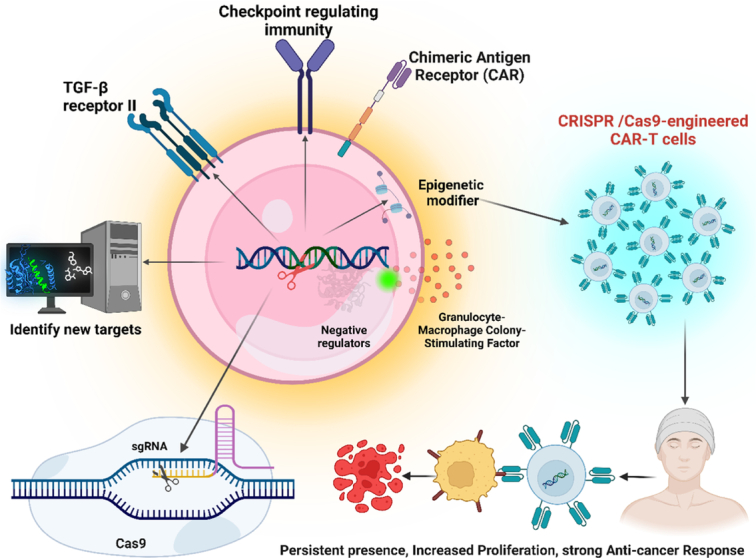Figure 5.

This schematic depicts the application of CRISPR–Cas9 gene editing to enhance the long-term persistence of CAR T cells in cancer immunotherapy. Potential strategies include (1) Disruption of T cell exhaustion-related genes (e.g. PD-1) to prevent CAR T cell inactivation. (2) Knock-in of genes promoting memory T cell formation (e.g. TCF1) for sustained antitumor response. (3) Modification of metabolic pathways to improve CAR T cell fitness and persistence within the tumor microenvironment. Overall, CRISPR–Cas9 offers a versatile toolkit to engineer next-generation CAR T cells with enhanced functionality and longevity for effective cancer therapy. (Adapted from Doudna and Charpentier18).
